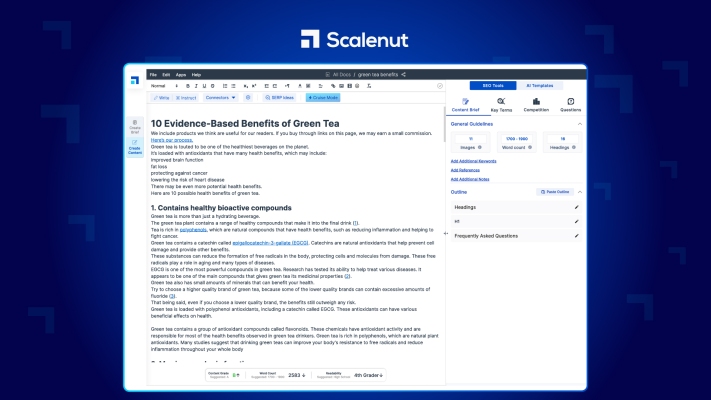
Fashion’s In-Demand Jobs | BoF
[ad_1]
Companies that rushed to staff up in the virtual world are less keen on hiring for those roles as they confront a potentially very real recession.
Across all industries, job postings with “metaverse” in the title declined 81 percent between April and June, Bloomberg reported, citing a study by workplace consultancy Revelio. Fashion is no exception: while brands are still launching plenty of web3 and metaverse projects, overall enthusiasm appears to have waned in tandem with NFT and cryptocurrency prices.
Fashion brands mostly still rely on external partners to build their virtual storefronts and fashion shows. But as more companies — Puma, Adidas, Kenzo and Gucci among them — create brand channels on Discord, a messaging platform popular with web3 early adopters, there could be staffing needs down the line for roles like community managers and, eventually, some virtual salespeople, experts say.
But these days, the priority in hiring is for roles that will help companies get through near-term uncertainty, whether it’s navigating supply-chain snarls, new environmental regulations or shifting demands from socially conscious consumers.
Diversity and inclusion managers and environmental, social and governance consultants, once rare in fashion, are growing fields, especially at large companies. More traditional positions in supply chain and human resources are evolving fast.
“Companies are starting to have that inflexion of, ‘What roles and capabilities are going to drive longer-term strategy for us and also get us through some economic uncertainty,’” said Lisa Butkus, a partner with Hanold Associates and leader of its retail and luxury goods practice.
Here, BoF breaks down the current moment’s in-demand fashion jobs.
Environmental, Social and Governance (or ESG) Compliance
For most of the past two decades, ESG was an increasingly important but fuzzily defined subject. Each company had its own ideas about how to prioritise matters related to their environmental impact and human rights.
Governments in North America and Europe are introducing a growing number of laws aimed at reining in abusive practices in fashion’s supply chain and putting real teeth behind environmental standards. In the US, the Uyghur Forced Labour Prevention Act (UFLPA), which went into effect in June, prohibits goods made with forced labour in China’s Xinjiang Uyghur Autonomous Region from entering the US. In the UK, the watchdog Competition and Markets Authority in July launched an investigation into sustainability claims made by fast-fashion brands Boohoo, Asos and British supermarket chain Asda’s clothing label George.
Fashion brands are scrambling to hire lawyers for their internal teams who specialise in areas such as international law and navigating environmental regulations, said Sara Orr, a partner at Kirkland & Ellis LLP in Chicago, who specialises in environmental, social and governance.
Whether in-house or external, legal advisors can advise on ESG reporting and disclosure requirements, perform litigation risk analysis, help guide response to shareholder activism and could flag potential human-rights issues or environmental risks in the supply chain. Companies looking to boost their ESG expertise also add point people in HR, communications, marketing and other areas to address the legal team’s recommendations, Orr said.
Currently, Authentic Brands Group, the parent company of Nautica and Juicy Couture, is hiring an ESG director (per LinkedIn), PVH Corp. needs a senior director of ESG communications (per its careers site) and Saks Fifth Avenue is recruiting for a sustainability director post that requires a bachelor’s degree in environmental studies (per LinkedIn).
Supply Chain and Logistics
Persistent port snarls, product shortages, economic and geopolitical tensions as well as amplified consumer expectations around fast shipping have all helped place supply chain — and a bevy of logistics, assortment and operations roles that support the function — at the top of the priority list for fashion companies.
“I cannot think of a more important role right now than heads of supply chain and heads of operations,” said Inna Kuznetsova, chief executive officer for ToolsGroup, a global supply chain planning and optimization firm.
Nordstrom named its first chief supply chain officer early last year, Revlon hired a new CSCO amid snarls in 2021 and luggage brand Away added its first chief operating officer that same year. All three companies pointed to a need to put C-suite weight behind the growing challenges of logistics.
“Before, when stores were the primary driver of retail sales, supply chains were more of a back-office function,” said Kyle Rudy, a senior partner at executive recruiting firm Kirk Palmer Associates. “Globalisation and technology have transformed that.”
Fashion companies are hiring for support roles like operations managers, merchandising assortment planners, shipping and logistics specialists and pricing and promotions specialists, Kuznetsova said.
Employment of supply chain management professionals (or logisticians) is expected to grow by 30 percent from 2020 to 2030, according to the US Bureau of Labour Statistics. Kate Spade is currently hiring for a materials development coordinator and materials manager (per BoF careers), Under Armour needs a senior materials developer for apparel and accessories (per its careers site), Luxottica is recruiting for a supply chain analyst (via CareerBuilder) and Gucci needs a VP of supply chain, according to its careers website.
Positions that can help companies boost a company’s sustainability efforts — like material and product developers — are also getting new attention, said Janou Pakter, founder of New York-based executive search firm Janou LLC.
“We constantly see where people are getting awards for working with amazing new sustainable materials,” she said. “[Being able to source] these materials and all these different fabrics — those are unbelievably hot and important.”
Human Resources and Diversity, Equity and Inclusion
New employee expectations around flexibility, remote work and employer-backed mental wellness coupled with consumer demands that organisations have progressive policies that prioritise areas such as diversity and inclusion and social responsibility have all helped to make human resources roles and responsibilities more complicated — and in demand — than ever before.
The turmoil of the last two years, including the pandemic, economic uncertainty, social justice protests and the so-called Great Resignation, revealed that some senior HR leaders “may not be as nimble as the world now requires,” Rudy said.
The result has been high turnover among senior leaders but also new opportunities for companies to “upgrade” their HR departments and prioritise candidates who are “nimble and diverse,” he added.
Hiring needs range from senior HR leaders to generalists and coordinators, with Gucci currently hiring for a “people operations coordinator,” Balenciaga seeking an HR generalist, per LinkedIn, and Kering eyewear recruiting for an HR manager for North America, per its careers website.
When it comes to the DEI function specifically, fashion companies — from Kering to PVH Corp. to Nike and Lululemon — have added diversity leaders to their C-suite over the past two to four years. But the chief diversity officer role itself has become controversial due to high turnover and complaints that these executives are often overworked and under-resourced.
Facing renewed pressures to put greater resources behind DEI goals, companies are starting to staff up their DEI function — giving DEI heads more resources to hire and groom junior and mid-level managers and directors who could help tackle the complexity of the function, Butkus said.
Companies like J.Crew and Tiffany & Co. have recently added diversity managers. Currently, Condé Nast is looking for a diversity and inclusion director, Farfetch is seeking a senior manager of diversity and inclusion and Nike is hiring a business diversity and inclusion analyst, per LinkedIn.
[ad_2]
Source link


